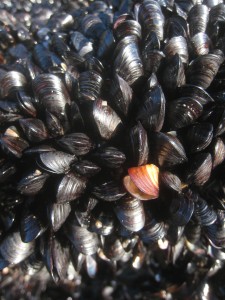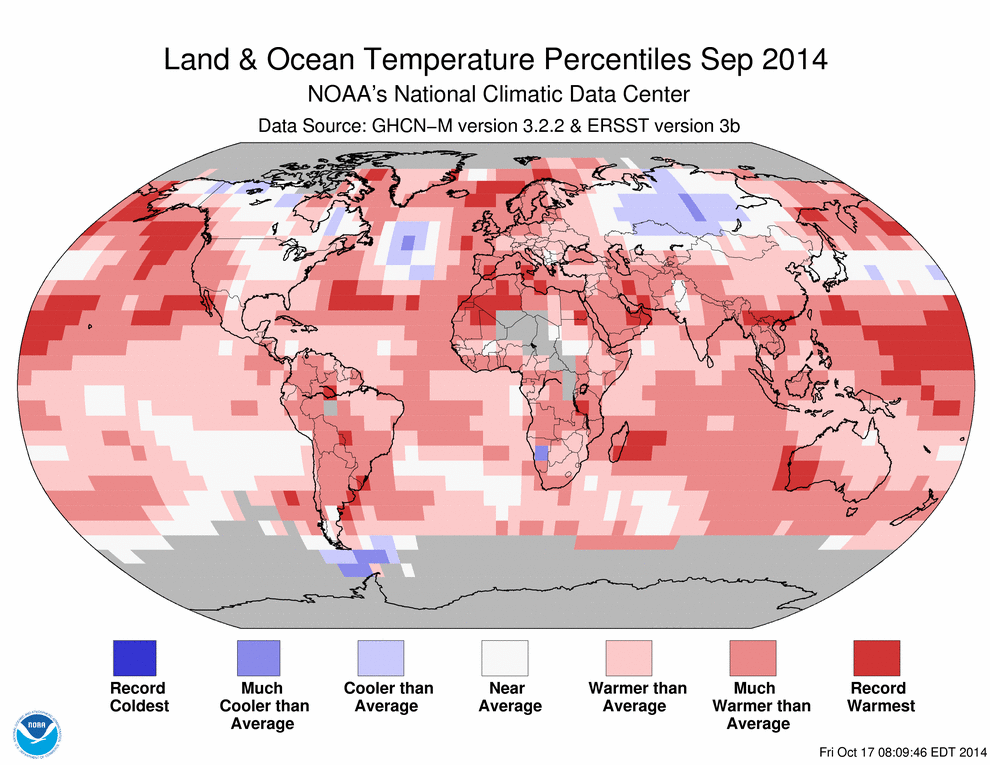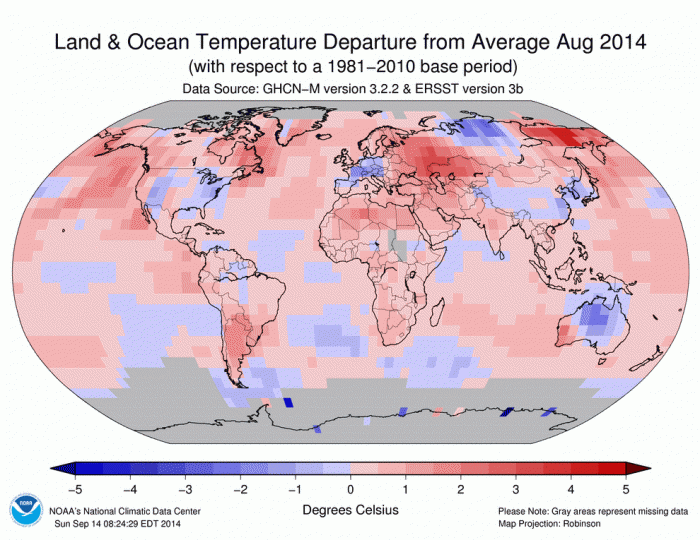
Mussels.
Scientific American reports on the plight of mussels. The ocean is becoming more acidic as man-made carbon dioxide emissions continue to increase. This is having a devastating effect on mussels, making them weaker than before. From the article:
The strength of a mussel, the shellfish’s ability to grasp tightly to rocks, docks and ships despite crashing waves or prying fingers, is legendary. Scientists have even studied how mussels, using slender fibers called byssal threads that are simultaneously hard and stretchy, are able to cling so tight in a rough, wet environment, in hopes that humans could mimic that technology to create strong, flexible textiles.
Now, climate change is impairing that ability to cling. Researcher Michael O’Donnell, an ecologist at the University of Washington, has shown that ocean acidification, a process in which absorbing large amounts of carbon dioxide lowers the pH of oceans, is weakening mussels’ byssal threads.
O’Donnell and his colleagues took bay mussels from San Juan Island, in the Puget Sound, and put them in chambers with seawater at different pH levels. They found that the mussel byssal threads grown in acidified conditions with a pH lower than 7.6 were 40 percent weaker than normal. The research was published Sunday in the journal Nature Climate Change.


